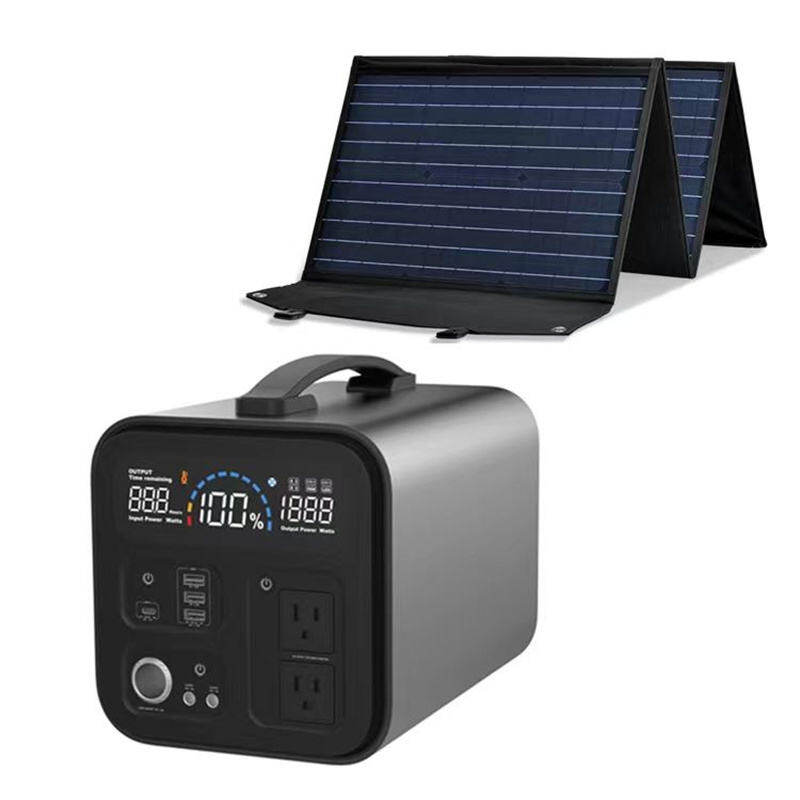Email format error
Email cannot be empty
Email already exists
6-20 characters(letters plus numbers only)
The password is inconsistent
Email format error
Email cannot be empty
Email does not exist
6-20 characters(letters plus numbers only)
The password is inconsistent


The Bright Future of Solar Energy: Understanding the 1000W Solar System and Its Cost
In recent years, the world has witnessed a significant shift towards renewable energy sources, with solar power leading the charge. Solar energy is no longer a futuristic concept but a practical solution for today’s energy challenges. Among the various solar systems available, the 1000W solar system has garnered much attention for its balance between affordability and efficiency. In this blog, we’ll dive into the world of solar energy, explore the benefits of a 1000W solar system, and discuss the 1000W solar system price, helping you understand why this could be a smart investment for your energy needs.
Understanding Solar Energy: A Brief Overview
Solar energy harnesses the power of the sun and converts it into electricity using photovoltaic (PV) panels. These panels, usually mounted on rooftops or open land, capture sunlight and convert it into direct current (DC) electricity. This DC electricity is then converted into alternating current (AC) by an inverter, which can be used to power homes, businesses, or even feed back into the grid.
The beauty of solar energy lies in its simplicity and sustainability. Unlike fossil fuels, which are finite and harmful to the environment, solar energy is abundant and clean. The sun produces more energy in an hour than the entire world uses in a year, making it a limitless source of power.
What is a 1000W Solar System?
A 1000W solar system, often referred to as a 1kW system, is a relatively small but efficient solar setup designed to generate around 1000 watts of power under optimal conditions. This system typically includes several key components:
Solar Panels: These are the heart of the system, responsible for capturing sunlight. A 1000W system might include 3-4 panels, depending on their efficiency.
Inverter: This device converts the DC electricity generated by the panels into AC electricity, which can be used in your home or business.
Mounting Equipment: To securely attach the solar panels to your roof or another structure.
Wiring and Connections: To ensure the electricity generated flows smoothly to the inverter and into your home’s electrical system.
Battery Storage (Optional): In some cases, a battery can be added to store excess power generated during the day for use at night or during cloudy periods.
Why Choose a 1000W Solar System?
You might wonder why a 1000W solar system is worth considering, especially when larger systems are available. Here are a few reasons:
Affordability: A 1000W solar system is significantly more affordable than larger setups, making it an excellent choice for those looking to dip their toes into solar energy without breaking the bank.
Space Efficiency: If you have limited roof space, a 1000W system is a compact option that won’t overwhelm your home’s aesthetics.
Energy Independence: Even a 1000W system can reduce your reliance on the grid, lowering your energy bills and providing a degree of energy independence.
Scalability: A 1000W system can be a starting point. As your energy needs grow, you can add more panels and expand the system over time.
Environmental Impact: Every watt of solar power generated reduces your carbon footprint, contributing to a cleaner, greener planet.
The 1000W Solar System Price: What to Expect
When considering a solar system, cost is often a primary concern. The 1000W solar system price can vary depending on several factors, including the quality of the panels, the complexity of the installation, and your location.
On average, you can expect the 1000W solar system price to range from $2,500 to $5,000. This price typically includes the solar panels, inverter, mounting equipment, and installation. While this might seem like a significant upfront cost, it’s important to consider the long-term savings on your energy bills. In many cases, homeowners find that their solar system pays for itself within 5 to 7 years, depending on local energy costs and solar incentives.
Factors Affecting the 1000W Solar System Price
Several factors can influence the final cost of your solar system:
Quality of Components: Higher-quality solar panels and inverters come with a higher price tag but also offer better efficiency and longevity. It’s crucial to balance cost with quality to ensure you get the best value.
Installation Complexity: If your roof is difficult to access or has an unusual shape, installation costs may be higher. Flat roofs or roofs with significant shading might require additional equipment or a different mounting approach, affecting the price.
Geographic Location: Solar incentives, rebates, and local energy costs can vary widely by region, impacting the overall cost of your system. In areas with high energy prices or generous solar incentives, the return on investment for a solar system can be even greater.
Battery Storage: Adding a battery to your system will increase the initial cost but provides the benefit of energy storage, allowing you to use solar power even when the sun isn’t shining.
The Future of Solar: Investing in Tomorrow
Investing in a 1000W solar system is not just about saving money; it’s about contributing to a sustainable future. As technology advances and solar becomes more efficient, the potential for savings and environmental impact will only increase. Moreover, the 1000W solar system price is likely to decrease over time as the demand for renewable energy grows and manufacturing processes improve.
In conclusion, a 1000W solar system is an excellent entry point for anyone interested in renewable energy. It offers a perfect balance of affordability, efficiency, and environmental impact. By understanding the 1000W solar system price and the benefits it brings, you can make an informed decision that not only benefits your wallet but also the planet. Solar energy is the way of the future, and the 1000W solar system is your gateway to that bright future.

